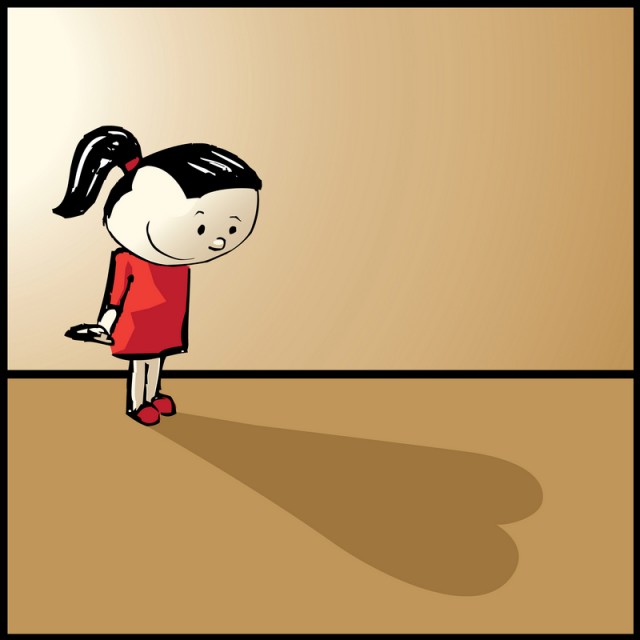We’ve all received countless messages throughout our lives telling us that the goal is to be somebody. It’s the American Dream. We get it from the media, from our families and our friends. Many of us have aligned ourselves with a particular track (career, relationship status, accomplishments) that provides assurance that we will be somebody, get somewhere—and hopefully be afforded immunity from trouble, despair, or vulnerability in the process.
Of course, there is nothing wrong with having goals or plans. In fact, these are rather good things. It’s when we use these aspirations to try to overcome ourselves that it gets tricky. So far as I know, we can’t outrun our own feet. We can’t outthink our own brains. We can’t override this human operating system that we live and breathe in every hour of every day. I know this, because I’ve tried.
I have spent at least half of my life obtaining three college degrees, going on meditation retreats, taking yoga classes, trying to eat healthfully, following my spiritual path, writing a book, maintaining a private practice, and after all of this—I discovered that I am still ME. This may not seem very shocking, but I have to admit, it was sort of a revelation. Wasn’t I going to leave some of my difficulties back there on that meditation cushion, or in a downward dog, in a journal entry or on my therapist’s couch? Even though I love my life and feel as though I am on the right path, I was pursuing my journey with the idea that someday I would be better.
Many of my clients in psychotherapy have a similar story to tell. They believe that if they were thin, enlightened, funny, smart, rich, in a relationship, less anxious, less fearful, less of themselves, then they would be happy—forever. I often tell my clients that I wish I had a magic wand that could render us free from the entanglements that life brings. But I don’t have such magical powers. And somewhere along the way I recognized that this was actually a good thing. Having such powers (and using them to this aim) would mean that I have bought into the crazy idea that each and every one of us is damaged goods; that we need to change and that we can’t manage whatever is happening in our lives. I don’t want to buy into that story. I want Thomas Merton’s idea that the best we can do is to be the best version of ourselves—in all our imperfect glory. Here is one of my favorite quotes by him:
“Finally I am coming to the conclusion that my highest ambition is to be what I already am. That I will never fulfill my obligation to surpass myself unless I first accept myself, and if I accept myself fully in the right way, I will already have surpassed myself.”
I want to love all of my mistakes, all of my blemishes, and all of my fears. They are the very things that propel me forward, keep it interesting, and most importantly—connect me to you.
With this in mind, I have redefined the goal of getting somewhere and being somebody to loving who I already am. I’m less interested in skipping to the end of the story where I finally have some answers (whatever that means), and more interested in reading each and every word, of each and every chapter. I want to linger over the pain as lovingly and with as much compassion as I would the more celebratory moments. I want to embrace the messiness as much as anything else, because that is what cultivates wholeness, meaning, and connection.
I hope that you might step into the fullness of who you already are today. No matter what your life looks like, or what you wish it could be. Pause and take a deep breath and find one thing you are grateful for about this circumstance, this moment, and your relationship to it. Remember that there is no one else exactly like you. I believe that is an amazingly wonderful gift worth celebrating. Remember that the struggle is just as important as the lesson and awareness that it provides. We may not have a magic wand that grants the ability to transcend the human condition, but maybe that’s the real magic—learning how to live within the mystery, within the chaos, within the ever-unfolding version of yourself that simultaneously remains uniquely, irreplaceably, magnificently, You.
Ingrid Mathieu, PhD is a psychotherapist and author of Recovering Spirituality. You can connect with her on Facebookand Twitter.












